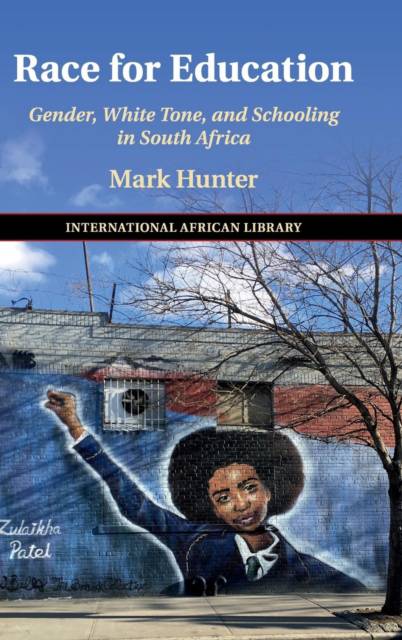
Je cadeautjes zeker op tijd in huis hebben voor de feestdagen? Kom langs in onze winkels en vind het perfecte geschenk!
- Afhalen na 1 uur in een winkel met voorraad
- Gratis thuislevering in België vanaf € 30
- Ruim aanbod met 7 miljoen producten
Je cadeautjes zeker op tijd in huis hebben voor de feestdagen? Kom langs in onze winkels en vind het perfecte geschenk!
- Afhalen na 1 uur in een winkel met voorraad
- Gratis thuislevering in België vanaf € 30
- Ruim aanbod met 7 miljoen producten
Zoeken
€ 136,95
+ 273 punten
Uitvoering
Omschrijving
Following the end of apartheid in 1994, the ANC government placed education at the centre of its plans to build a nonracial and more equitable society. Yet, by the 2010s a wave of student protests voiced demands for decolonised and affordable education. By following families and schools in Durban for nearly a decade, Mark Hunter sheds new light on South Africa's political transition and the global phenomenon of education marketisation. He rejects simple descriptions of the country's move from 'race to class apartheid' and reveals how 'white' phenotypic traits like skin colour retain value in the schooling system even as the multiracial middle class embraces prestigious linguistic and embodied practices the book calls 'white tone'. By illuminating the actions and choices of both white and black parents, Hunter provides a unique view on race, class and gender in a country emerging from a notorious system of institutionalised racism.
Specificaties
Betrokkenen
- Auteur(s):
- Uitgeverij:
Inhoud
- Aantal bladzijden:
- 320
- Taal:
- Engels
- Reeks:
- Reeksnummer:
- nr. 60
Eigenschappen
- Productcode (EAN):
- 9781108480529
- Verschijningsdatum:
- 24/01/2019
- Uitvoering:
- Hardcover
- Formaat:
- Genaaid
- Afmetingen:
- 193 mm x 234 mm
- Gewicht:
- 589 g

Alleen bij Standaard Boekhandel
+ 273 punten op je klantenkaart van Standaard Boekhandel
Beoordelingen
We publiceren alleen reviews die voldoen aan de voorwaarden voor reviews. Bekijk onze voorwaarden voor reviews.









